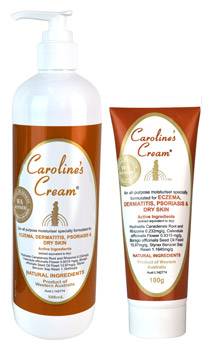Skin Sins Seven Ingredients To Avoid Putting On Your Skin

Skin Sins Seven Ingredients To Avoid Putting On Your Skin
Choosing skincare and cosmetics is more mind-boggling than ever, with the plethora of products currently on the market, and new brands and products appearing almost daily.
But while these products may look pretty and make grand promises, do we really know what they are doing to our skin?
Often the answer is no and we could be doing more harm than good, considering our skin absorbs up to 60 per cent of what we put on it.
'In Chinese medicine the skin is known as the -third lung',' says Caroline Monet, founder of Caroline's Skincare. 'We must take extra care of our skin as it is essentially a -living' and -breathing' organ.
'The skin's main task is to eliminate the toxins from our body so we need to be especially mindful and aware of what we are exposing our skin to.
'The skin's other main task is to regulate our body's temperature and our bodies cannot do this if our pores are blocked."
When it comes to ingredients we should avoid putting on our skin Sodium Lauryl Sulfate (SLS) and Parabens are constantly cited, but what about other harmful products that are not so widely known, or go under seemingly innocent names.
'It can be very difficult to know exactly what an ingredient is and its effect on the skin, especially if it's not one of the main ingredients known for being harmful," says Caroline.
'The following ingredients should be considered when purchasing your personal skincare products. One of the biggest issues with cosmetics is the use of synthetic fragrances, colours and the preservatives, especially if you suffer from sensitive skin or are prone to allergic reactions to products."
Benzoic Acid – Synthetic
This ingredient is used in cosmetics as a fungicide/preservative and is also classified as an insecticide and can cause illness if ingested. Adverse effects on skin and eye area can be redness and a burning sensation. If Benzoic Acid is inhaled, it can cause damage to the nervous system. Eaten in food, it's mildly toxic. Benzoic Acid has been linked to asthma problems and increased levels of hyperactivity in children.
Dowicil 200 (Also known as Quarternium) – Synthetic
Widely used in cosmetic products as an anti-microbial (preservative). This ingredient is absorbed into the skin and can cause a burning sensation and general skin irritation. It is the most common synthetic that causes allergic contact dermatitis.
Bronopol – Synthetic
Used as a fungicide (preservative) in place of alcohol in cosmetic products, this ingredient can cause irritation to the skin. Also commonly used in baby wipes. Bronopol is classified as a dangerous substance in Europe.
Cinnamic Acid Compounds – Synthetic Fragrance/Preservative
This ingredient acts as a fixative or preservative in cosmetic products. It is also used as flavouring in toothpastes and confectionary products and can cause contact dermatitis and general skin irritation. It should be noted that the word -fragrance' on a bottle can indicate the use of any of around 4000 ingredients and most of these will be synthetic.
These fragrances can cause problems when inhaled such as headaches, nausea and disorientation as well as skin irritations when applied topically to the skin. People don't realise the affect that inhaling synthetic fragrances can have. They can affect the central nervous system and in some cases they can cause depression.
Urea – Synthetic
Urea is the synthetic version of urine used in skincare and cosmetics, and is often used as a preservative. It releases formaldehyde which in turn can attribute to skin allergies, irritations and when inhaled in concentrated forms can even bring about respiratory problems such as asthma. While it is used in some therapeutic skincare products and may be beneficial for those who suffer severe psoriasis it is preferable that it is not used long-term.
Benzoyl Peroxide – Synthetic
This ingredient is synthetic preservative/antiseptic that is corrosive to the skin in concentrated solution and is most often found in acne products. It removes the natural protective barrier and nutrients from skin and can also cause photo toxicity (sensitivity to the sun) leading to skin pigmentation problems as well as bleaching of the skin. It can cause ongoing sensitivity to the skin and premature ageing, and has been shown to produce DNA damage.
Propylene Glycol
This is a form of mineral oil and a well-known skin irritant that can dry out the skin. Used as hydraulic brake fluid and antifreeze, it is found in solvents, paints and plastics and is used as a humectant (moisture retainer) and stabiliser in cosmetics such as acne treatments, soaps, mascara and shampoos.
It very quickly absorbs into the skin and can cause allergic reactions to those who suffer from sensitivity and recurring skin conditions such as eczema and dermatitis. It has been shown to be linked to cancer, developmental/reproductive issues, allergies/immunotoxicity, neurotoxicity, endocrine disruption, and organ system toxicity. Its use is being phased out because of toxicity.
So when it comes to your skin, be savvy and choose products that heal and nourish and are not toxic or harmful. Your skin will thank you for it.
Caroline Monet is the founder of Australian skincare company, Caroline's Skincare.
Caroline's Cream 500ml – RRP: $32.95/Caroline's Cream 100g – RRP: $17.95
Caroline's Wash – 500ml – RRP $31.95/Caroline's Wash 100g – RRP $17.95
Caroline's Lip Balm – RRP: $11.50
All specially formulated for dry, sensitive and problem skin.
Caroline's Skincare products are available from Pharmacies, Health Food Stores, Healthcare Practitioners, Hairdressing Salons, and Podiatrists throughout Australia.
See www.carolineskincare.com for stockist info or phone 1800 369 273
jane@jakepublicrelations.com.au
MORE






